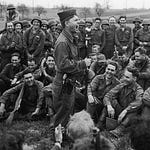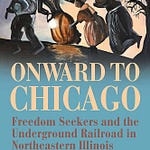Bicycle racing was a legitimate spectator sport in the 1890s. Big crowds gathered in cities across America and Europe to watch men and women compete in a sport that exploded over the last decade of the 19th century.
Perhaps the biggest star of that period was Major Taylor, an African American cyclist who first achieved success as a teenager in 1894, noted Robert Turpin, a history professor at Lees-McRae College in North Carolina and the author of Black Cyclists: The Race for Inclusion.
A bicyclist who previously competed as an amateur in races across the United States, Turpin said he was first moved to learn more about black cyclists after learning about Taylor’s success. “He was world champion in 1899 and continued to compete on the bike racing circuit until retiring in 1910,” said Turpin.
After retiring, Taylor became known as the wealthiest man in Worcester, Mass., a town 40 miles west of Boston, said Turpin. “He purchased the first car in town and owned property there,” he said.
But other black cyclists weren’t as fortunate. While Taylor competed as a professional, able to secure large purses, other African Americans were forced to compete as amateurs, not eligible for the cash prizes offered, said Turpin.
Participation was specifically limited to white participants in the 1890s by the sanctioning body, the League of American Wheelmen (and later the NCAA), he said. Taylor and a number of other black racers who were already members were allowed to remain but others of color were excluded from competing.
Taylor also complained of sometimes being “pocketed” during races. Racers would conspire to work together to box the black cyclist out, restricting his ability to sprint to the finish. Those involved would then divide the prize money amongst themselves, said Turpin.
While racers of color would compete in Europe where they would be less likely to face racial restrictions, sometimes U.S. racism would follow. Turpin said sometimes racers would be denied access to a European hotel because of the complaints of American guests.
Despite the impediments placed before them, black cyclists continue to break through, said Turpin, noting that Nelson Vails won a silver medal in the 1984 Olympic games held in Los Angeles while Biniam Girmay from Eritrea, one of the poorest countries in Africa, recently won a stage of this year’s Tour de France, becoming the first black African to take a first in the month-long competition.















Share this post